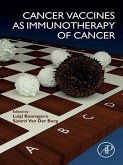Cancer: How Lifestyles May Impact Disease Development, Progression, and Treatment explores different processes that influence the efficacy of treatments and what lifestyle and behavioral modification options are available to patients to improve therapy responses, with a focus on addressing their strengths and weaknesses. The book discusses mechanisms by which particular lifestyles may affect cancer processes, including various aspects of immune functioning, inflammatory and energy-related processes, reactive oxygen species, hormonal and neurotransmitter mechanisms, the role of neurotrophins, and microbial effects. Considerable attention is devoted to the impact of psychosocial processes that indirectly affect disease occurrence, and to behavioral change methods.
- Focuses on the link between lifestyle factors (eating/diet, exercise, sleep, circadian rhythms, and stressors) in the development and progression of various types of cancer
- Addresses the contributions of lifestyle behavior to the efficacy and moderation of cancer treatments and their side effects
- Delineates mechanisms by which particular lifestyles may come to affect the cancer process
Dieser Download kann aus rechtlichen Gründen nur mit Rechnungsadresse in A, B, BG, CY, CZ, D, DK, EW, E, FIN, F, GR, HR, H, IRL, I, LT, L, LR, M, NL, PL, P, R, S, SLO, SK ausgeliefert werden.









